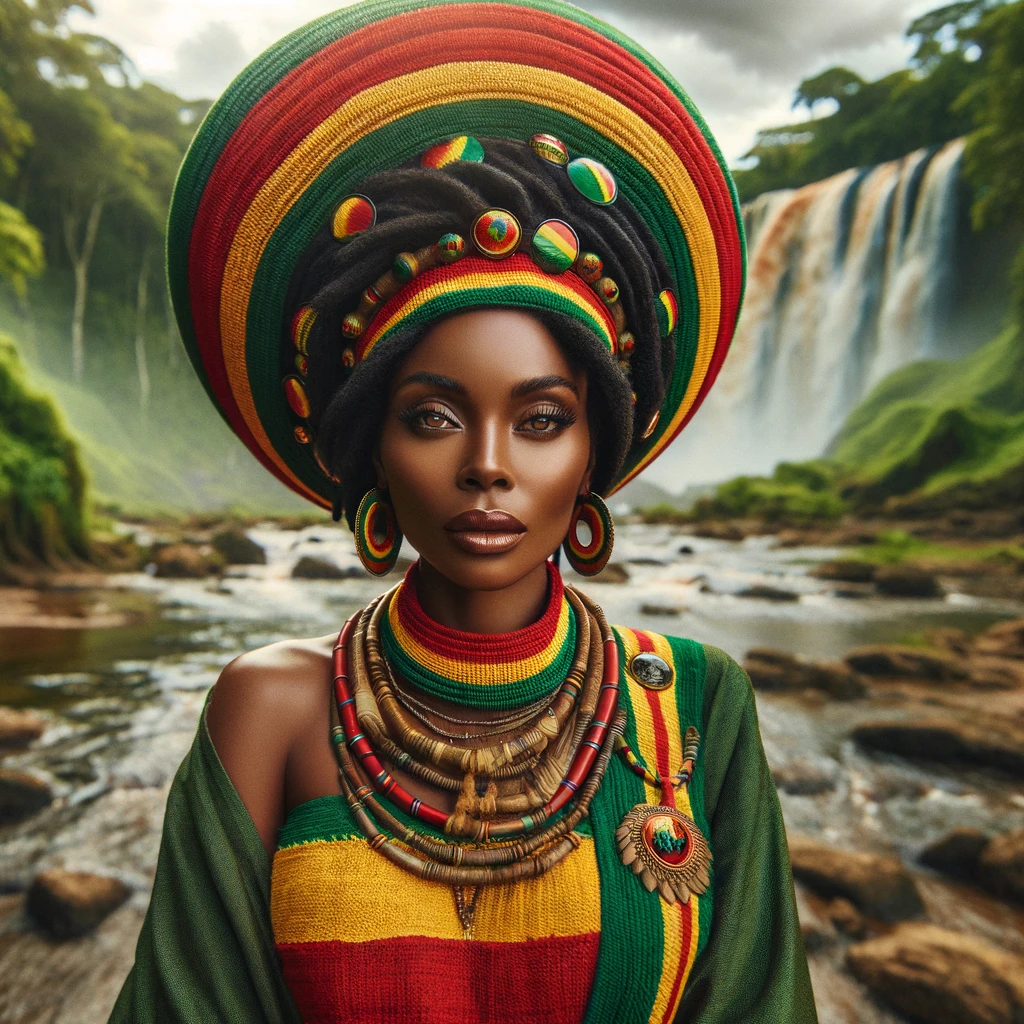In Rastafari culture, women, referred to as Queens, play a vital and respected role that is both spiritual and practical within the community.
1. Spiritual and Cultural Foundations
Queens in Rastafari are often seen as the backbone of the community, embodying strength, wisdom, and nurturing qualities. They uphold and teach the principles of Rastafari, maintaining the spiritual health of their families and communities. Their role is deeply influenced by the reverence for Queen Omega, the feminine aspect of God in Rastafari belief, emphasizing balance and respect in gender dynamics.
2. Social Responsibilities
Queens are pivotal in educating the younger generation, passing down cultural values and traditions through stories, songs, and daily practices. They are also key in preparing Ital food, ensuring dietary laws that align with Rastafari spiritual practices are followed, and fostering a healthy living environment.
3. Leadership and Activism
Despite traditional gender roles, many Queens are leaders and activists within the movement. They organize community events, participate in reasoning sessions, and are often at the forefront of initiatives aimed at social justice, community development, and charity.
4. Artistic Expression
Queens also contribute significantly to the arts within Rastafari culture, particularly through music, poetry, and crafts. Their artistic expressions often explore themes of liberation, identity, and spirituality, providing a voice to their unique perspectives within the movement.
Closing Thoughts
The Queens of Rastafari are integral to the sustenance and growth of the movement, embodying strength, wisdom, and love. Their roles reflect the Rastafari values of equality, unity, and respect, continuing to inspire both within and outside the community.

